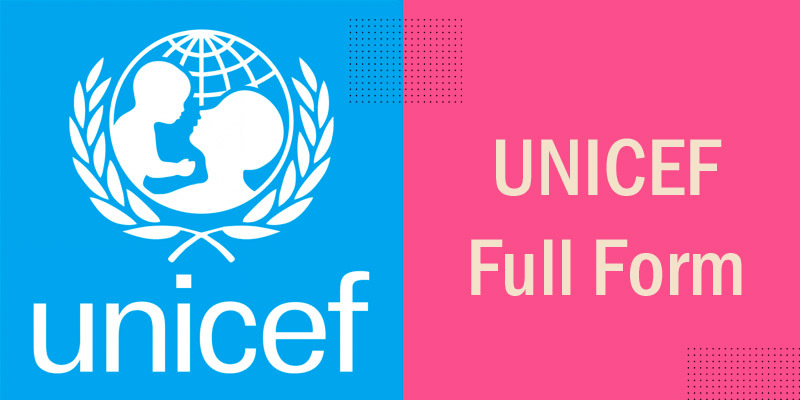The full form of UNICEF is the United Nations International Children’s Emergency Fund, presently known as the United Nations Children’s Fund.
Introduction
UNICEF was formed by the United Nations General Assembly on 11 December 1946 to provide emergency food and healthcare to children and mothers in countries that had been devastated by World War II. In 1953, the UNICEF changed its name to the United Nations Children’s Fund to reflect its broader mission. However, it retained its original abbreviation i.e. UNICEF. Henrietta H. Fore is the present Executive Director of the organization.
This article highlights the full form of UNICEF along with its history, objective, functions, reports, and recent developments.
UNICEF Objective
United Nations International Children’s Emergency Fund (full form of UNICEF) works in over 190 countries and territories to save children’s lives, defend their rights, and help them fulfill their potential through a lifecycle-based approach starting from early childhood to adolescence. It works towards the reduction of poverty and violence faced by children in many parts of the world. UNICEF drives change for children and young people every day across the globe.
UNICEF Functions
- Child Protection and Inclusion: UNICEF works with partners around the world to promote policies and expand access to services that protect all children, which includes focusing on developing values and skills of adolescents, providing safeguard from violence, exploitation, and abuse, listening to the problems and sharing ideas to empower individuals, environmental sustainability, supplying lifesaving human services to the children and mothers, creating a healthy environment for children with disability, gender disparity between girls and boys, and enabling citizens to exercise their rights to participate in public policy decisions.
- Child Survival: UNICEF has helped reduce child mortality rate all over the world by enacting initiatives like an integrated maternal and child health and nutrition service package, significant progress in immunization, strengthening the health system to serve the needs of women and children better, eliminating mother-to-child transmission of HIV, WASH program to improve water, sanitation services, and basic hygiene practices.
- Education: UNICEF lends its support for quality and equal learning opportunities for girls and boys and children with disabilities and to make their learning process interesting by implementing innovative ideas.
- Emergencies: UNICEF provides emergency assistance for the children and families affected by any natural calamity.
- Innovation: UNICEF works with partners in every sector to co-create innovative solutions like exploring blockchain applications for children, digital health services, data science and artificial intelligence, Internet of good things real-time information accelerating progress for children and young people.
Recently, UNICEF partnered with WHO (World Health Organization) to undertook a campaign in a few districts in Somalia and Puntland, the countries facing massive poliovirus outbreaks, to spread the message about vaccinations for poliovirus and ensure that the vaccine is made available to the children.
According to recent estimates, over half of the global population – or 4.2 billion people worldwide – lack safe sanitation, 673 million people practice open defecation, and 701 million people use unimproved facilities. UNICEF pledged to support 60 million people across the globe to gain access to at least basic sanitation services by the end of 2021. Hence, it gathers development partners, financial institutions, the private sector, and government representatives to accelerate market-based solutions for making toilets and sanitation services more affordable and accessible for households in the East and Southern Africa region.
Conclusion
This was all about UNICEF, the global community that has the knowledge, networking, and resources to prevent the loss of healthy life in children across the world. In this article, we have discussed the objective and functions of UNICEF, and its plans. If you still have any doubts or queries related to UNICEF, you can write to us through the comments sections. We would be happy to answer or resolve them at the earliest.

